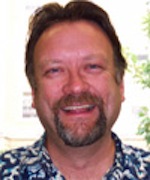Five Questions with Kevin Niemi
Inside UW–Madison recently asked Kevin Niemi about the current status of K-12 science education. Niemi directs the outreach group at the Institute for Biology Education and is pursuing the formation of the Office for STEM (Science, Technology, Engineering and Mathematics) Outreach on campus. Niemi, a scientist by training, has been involved with formal and informal science education and outreach for the past 20 years and is president of the Wisconsin Society of Science Teachers.

Niemi
Inside UW: We keep hearing that kids, especially girls, are scared away from science. True?
Niemi: It depends on which aspect of science, and which level. In the university, there is more representation of females in biology and life science, but in middle and high school, more males still take advanced science courses. Introducing learning groups and doing projects together could help attract and retain female students.
Inside UW: Whatever became of the drive toward “inquiry-driven science” 10 or 20 years ago?
Niemi: Inquiry — asking and answering questions based on data — remains a central pedagogical tool, but in the Next Generation Science Standards, we call it the “practices of science and engineering.” To get good at something, you can’t just inquire, you also have to practice; but science is always about answering questions based on facts from the natural world.
Inside UW: What is the most promising trend in K-12 science education?
Niemi: It’s those new science standards. For two years now, scientists, educators and others have been involved in this new framework for the first set of truly national science standards. These standards emphasize doing science and engineering; cross-cutting concepts at the heart of every science; and core ideas for particular disciplines. We’re hoping these standards will be finished, after further input from teachers and scientists, within a year.
Inside UW: What is the hardest area of science to sustain interest?
Niemi: Probably the physical sciences. Some of this is due to inadequate preparation in math; many students think math is only for math class, not science class! The Next Generation Science Standards will focus explicitly on the role of math in scientific thinking. This is one example of how we want to break down silos in the pursuit of a more rigorous science education.
Inside UW: Is the Internet helping or hurting hands-on science?
Niemi: Used correctly, the Internet could be incredibly positive. Giving instant access to bits of information allows us to emphasize thinking over regurgitating facts. Students need to understand what electrons do in an atom, not to memorize which orbitals the electrons occupy in phosphorus versus potassium; they can look that up in a second.
Tags: education



